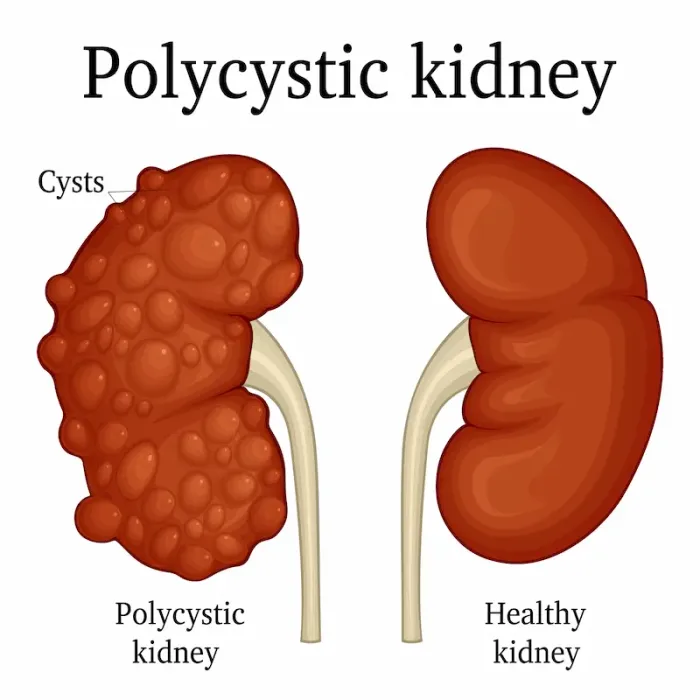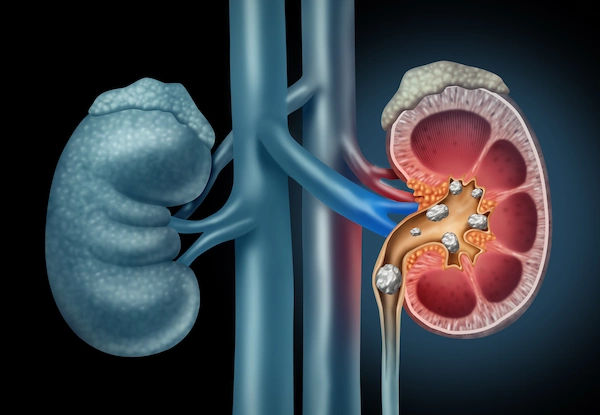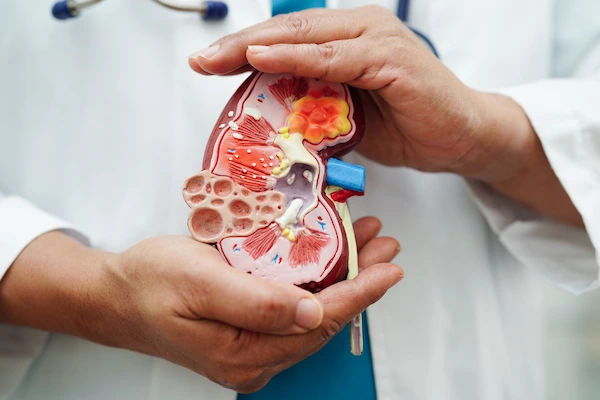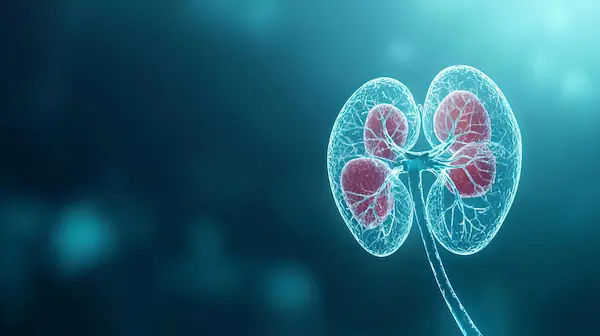Gym Supplements and Kidney Damage; A Complete Safety Guide
Discover the truth about gym supplements and kidney damage. Learn which supplements pose the highest risks, warning signs to watch for, and how to protect your kidney health while pursuing fitness goals.

Written by Dr. M L Ezhilarasan
Reviewed by Dr. Rohinipriyanka Pondugula MBBS
Last updated on 13th Jan, 2026

Introduction
The pursuit of peak physical performance drives millions to the gym and, often, to the supplement aisle. Protein powders, creatine, and pre-workouts promise enhanced muscle growth, strength, and energy. But lurking behind these enticing benefits is a less-discussed risk: potential harm to your kidneys. The link between certain gym supplements and kidney disease is a growing concern in the medical and fitness communities. Your kidneys are vital, hard-working organs that filter your blood around the clock, and overloading them with poorly researched compounds can have serious consequences. This guide will demystify the connection, identify the highest-risk supplements, teach you to recognise warning signs, and provide actionable strategies to safeguard your health while pursuing your fitness goals. Your gains shouldn’t cost you your long-term well-being.
Why Your Kidneys Are The Unsung Hero of Your Fitness Journey
Your kidneys are two bean-shaped powerhouses located in your lower back, and they perform a critical job that is essential for any athlete or gym-goer. Every day, they process about 200 quarts of blood to sift out about 2 quarts of waste products and extra water, which become urine. This process is crucial for maintaining a stable balance of body chemicals, regulating blood pressure, and ensuring your muscles and nerves function correctly.
The Kidney's Full-Time Job: Filtration and Balance
Think of your kidneys as an incredibly sophisticated, non-stop filtration system. Tiny units inside them called nephrons act as filters. They decide what to keep (like vital proteins and nutrients) and what to excrete (like metabolic waste products, including those generated from breaking down protein and supplements). For a fitness enthusiast, this system is working overtime to handle the increased metabolic by-products from intense exercise and supplementation.
How Supplements Can Overwhelm the System
When you introduce concentrated doses of supplements, you are essentially adding more "load" to this filtration system. Some compounds are directly toxic to the nephrons (nephrotoxic). Others, like excessive protein, create a much higher amount of waste products like urea, forcing the kidneys to work harder. If this is combined with factors like dehydration—common during intense workouts—the kidneys can become stressed, leading to inflammation, cell damage, and in severe cases, acute kidney injury or the acceleration of chronic kidney disease.
The High-Risk List: Supplements Linked to Kidney Disease
Not all supplements are created equal. While many are safe when used appropriately, others carry a well-documented risk, especially with chronic use or high dosages.
Creatine: The Performance Booster with a Hydration Caveat
Creatine is one of the most researched and effective supplements for improving strength and power output. The primary kidney-related concern with creatine is not creatine itself in recommended doses (3-5g daily), but its effect on hydration and a blood marker. Creatine supplementation increases creatinine levels in the blood—a standard marker used to test kidney function. This can sometimes lead to a false red flag on blood tests. The real risk emerges when users take extremely high doses without consuming enough water, leading to dehydration and increased strain on the kidneys. Staying hydrated is absolutely non-negotiable when using creatine.Consult a Nephrologist for Personalised Advice
The Protein Paradox: How Too Much of a Good Thing Hurts
The belief that "more protein is always better" is a dangerous myth for kidney health. While adequate protein is essential for muscle repair, chronically consuming amounts far exceeding your body's needs (e.g., 3-4g per kg of bodyweight) significantly increases the glomerular filtration rate (GFR) and places a constant, heightened workload on the kidneys. Over years, this hyperfiltration may contribute to kidney damage, particularly in individuals with pre-existing, undiagnosed kidney issues. For those with healthy kidneys, moderate high-protein diets are likely safe, but mega-dosing is an unnecessary risk.
Pre-Workout Powders and Stimulant Overload
Many pre-workout supplements are cocktails of high-dose caffeine and other stimulants like DMAA, DMHA, or synephrine. These compounds can drastically increase blood pressure and cause severe vasoconstriction (narrowing of blood vessels), including the vessels that supply the kidneys. Reduced blood flow to the kidneys can cause ischaemic injury. Furthermore, these products often contain extremely high doses of certain vitamins, like niacin (B3), which can be toxic to the liver and kidneys in excess.
Over-the-Counter Painkillers (NSAIDs): A Silent Threat
Many gym enthusiasts pop ibuprofen or naproxen before or after a workout to manage pain and inflammation. This is a hazardous habit. NSAIDs (Non-Steroidal Anti-Inflammatory Drugs) reduce the production of prostaglandins, which are crucial for maintaining blood flow to the kidneys. Using them around intense exercise—a time when the body is already dehydrated and relying on prostaglandins to ensure renal blood flow—greatly increases the risk of acute kidney injury.
Fat Burners and Proprietary Blends: The Unknown Danger
Perhaps the riskiest category is fat burners or "thermogenics." They often contain a proprietary blend of stimulants, herbs, and unregulated compounds. Cases of kidney injury and even failure have been linked to ingredients like high-dose caffeine, green tea extract (in extreme amounts), and other novel stimulants. The lack of transparency ("proprietary blend") means you don't know what you're consuming or in what quantity, making them a complete gamble with your health.
Recognising the Red Flags: Symptoms of Kidney Stress
Kidney damage often progresses silently, but there are signs you must never ignore.
Early Warning Signs You Might Ignore
• Changes in Urination: This is the most common sign. Look for foamy or bubbly urine (indicating protein leakage), urinating more or less frequently than usual, or urine that is dark in colour (a sign of concentration/dehydration).
• Swelling: Kidneys that aren't filtering properly allow protein to leak into the urine. This reduces the osmotic pressure that keeps fluid in your blood, leading to fluid retention and swelling (oedema) in your hands, feet, ankles, or face.
• Persistent Fatigue and Trouble Concentrating: A build-up of impurities in the blood can make you feel tired, weak, and unable to focus. This is also related to anaemia, which failing kidneys can cause.
When to Seek Immediate Medical Attention
If you experience these symptoms alongside supplement use, stop immediately and consult a doctor. If you have severe symptoms like difficulty breathing, extreme swelling, or confusion, seek emergency care. For persistent milder symptoms, it's crucial to get evaluated. If symptoms like unusual fatigue or changes in urination persist beyond two weeks, consult a doctor online with Apollo24|7 for further evaluation. They can advise on necessary tests, which Apollo24|7 offers convenient home collection for, like a basic renal function test (creatinine, urea) and urinalysis.
Who is Most at Risk? Understanding Your Vulnerability
While anyone can be affected, certain groups are at a significantly higher risk:
• Individuals with Pre-existing Kidney Conditions: Even a mild, unknown issue can be rapidly worsened by supplement use.
• Those with High Blood Pressure or Diabetes: These conditions are leading causes of kidney disease and make the organs more susceptible to damage.
• People Who Chronically Dehydrate Themselves: This includes those who use saunas heavily in conjunction with supplements or simply don't drink enough water.
• Users of Multiple Supplements: Stacking various supplements creates a cumulative burden and increases the risk of dangerous interactions.
Safe Supplementation: How to Protect Your Kidney Health
You can pursue your fitness goals intelligently and safely by following these core principles.
The Non-Negotiable: Hydration, Hydration, Hydration
This is the single most important factor. Water is essential for helping your kidneys dilute and flush out waste products. Aim for clear or light-yellow urine. A good rule of thumb is to drink an additional 8-16 ounces of water for every serving of supplement you take, especially creatine and protein.
The Importance of Third-Party Testing (NSF, Informed-Choice)
Never buy supplements from unknown brands or with proprietary blends. Look for certifications from independent organisations like NSF Certified for Sport or Informed-Choice. These seals guarantee that the product contains what the label says it does and is free from harmful contaminants like heavy metals, which can also damage kidneys.
Cycling Supplements and Avoiding Mega-Doses
More is not better. Adhere to the recommended dosages on the label—or better yet, those supported by scientific literature. Consider cycling off supplements like creatine for a few weeks every few months to give your body a break. Prioritise getting your nutrients from whole foods first.
Conclusion
Building a strong, healthy body is a marathon, not a sprint. The supplements you choose should support that long-term journey, not jeopardise it. While the allure of quick gains is powerful, the potential cost to your kidney health is far too great. By understanding the risks, choosing supplements wisely, prioritising hydration, and listening to your body’s signals, you can make informed decisions that protect your most vital organs. Remember, the foundation of great fitness will always be whole foods, smart training, adequate rest, and plenty of water. Use supplements as careful tools, not as cornerstones of your regimen. Your future self will thank you for the caution.Consult a Nephrologist for Personalised Advice
Consult a Nephrologist for Personalised Advice

Dr. Gaurav Sagar
Nephrologist
13 Years • MBBS, MD, DNB
Delhi
Apollo Hospitals Indraprastha, Delhi
(50+ Patients)

Dr. Ch. Anil Kumar
Nephrologist
6 Years • MBBS., MD., DM
Kakinada
Apollo Hospitals Surya Rao Peta, Kakinada

Dr. Ashwini Kumar Aiyangar
Nephrologist
16 Years • MBBS DNB(INT.MED) DNB(NEPH)
Secunderabad
Apollo Hospitals Secunderabad, Secunderabad
(125+ Patients)

Dr. Sanjay Maitra
Nephrologist
24 Years • MBBS, MD (Int. Med.), DM (Nephro)
Hyderabad
Apollo Hospitals Jubilee Hills, Hyderabad
(100+ Patients)

Dr. Archana Chiniwalar
Nephrologist
6 Years • MBBS, MD (Internal Medicine), DM (Nephrology)
Bengaluru
Apollo Medical Center, Marathahalli, Bengaluru
Consult a Nephrologist for Personalised Advice

Dr. Gaurav Sagar
Nephrologist
13 Years • MBBS, MD, DNB
Delhi
Apollo Hospitals Indraprastha, Delhi
(50+ Patients)

Dr. Ch. Anil Kumar
Nephrologist
6 Years • MBBS., MD., DM
Kakinada
Apollo Hospitals Surya Rao Peta, Kakinada

Dr. Ashwini Kumar Aiyangar
Nephrologist
16 Years • MBBS DNB(INT.MED) DNB(NEPH)
Secunderabad
Apollo Hospitals Secunderabad, Secunderabad
(125+ Patients)

Dr. Sanjay Maitra
Nephrologist
24 Years • MBBS, MD (Int. Med.), DM (Nephro)
Hyderabad
Apollo Hospitals Jubilee Hills, Hyderabad
(100+ Patients)

Dr. Archana Chiniwalar
Nephrologist
6 Years • MBBS, MD (Internal Medicine), DM (Nephrology)
Bengaluru
Apollo Medical Center, Marathahalli, Bengaluru
More articles from Kidney Disease
Frequently Asked Questions
1. Can taking protein powder every day cause kidney disease?
For individuals with healthy kidneys, a moderate daily protein intake from powder and food is unlikely to cause kidney disease. However, consistently consuming very high doses (far above your body's needs) places unnecessary strain on the kidneys and may cause problems over time, especially if you have an undiagnosed underlying condition.
2. I take creatine. How can I make sure I'm not harming my kidneys?
The key is hydration. Stick to a standard dose of 3-5 grams per day and drink plenty of water throughout the day—aim for your urine to be light yellow. Also, ensure your doctor is aware you take creatine if you get blood work done, as it elevates creatinine levels, which is a marker of kidney function.
3. What are the first signs of kidney damage from supplements?
The earliest and most common signs are changes in urination patterns (frequency, foaminess, or colour) and unexplained fatigue. Swelling in the extremities and lower back pain can also be indicators.
4. Are there any kidney-safe pre-workout supplements?
Look for pre-workouts that are transparent with their labels (no proprietary blends for stimulants) and are third-party tested (NSF, Informed-Choice). Choose products with moderate caffeine levels (200-300mg) and avoid those with multiple, unknown stimulants. Better yet, consider a simple cup of coffee for energy.
5. What should I do if I think a supplement has hurt my kidneys?
Stop taking the supplement immediately and increase your water intake. It is crucial to consult a healthcare professional for proper evaluation. They can order simple blood and urine tests to assess your kidney function. You can consult a doctor online with Apollo24|7 to discuss your symptoms and get advice on next steps, including any necessary tests.




